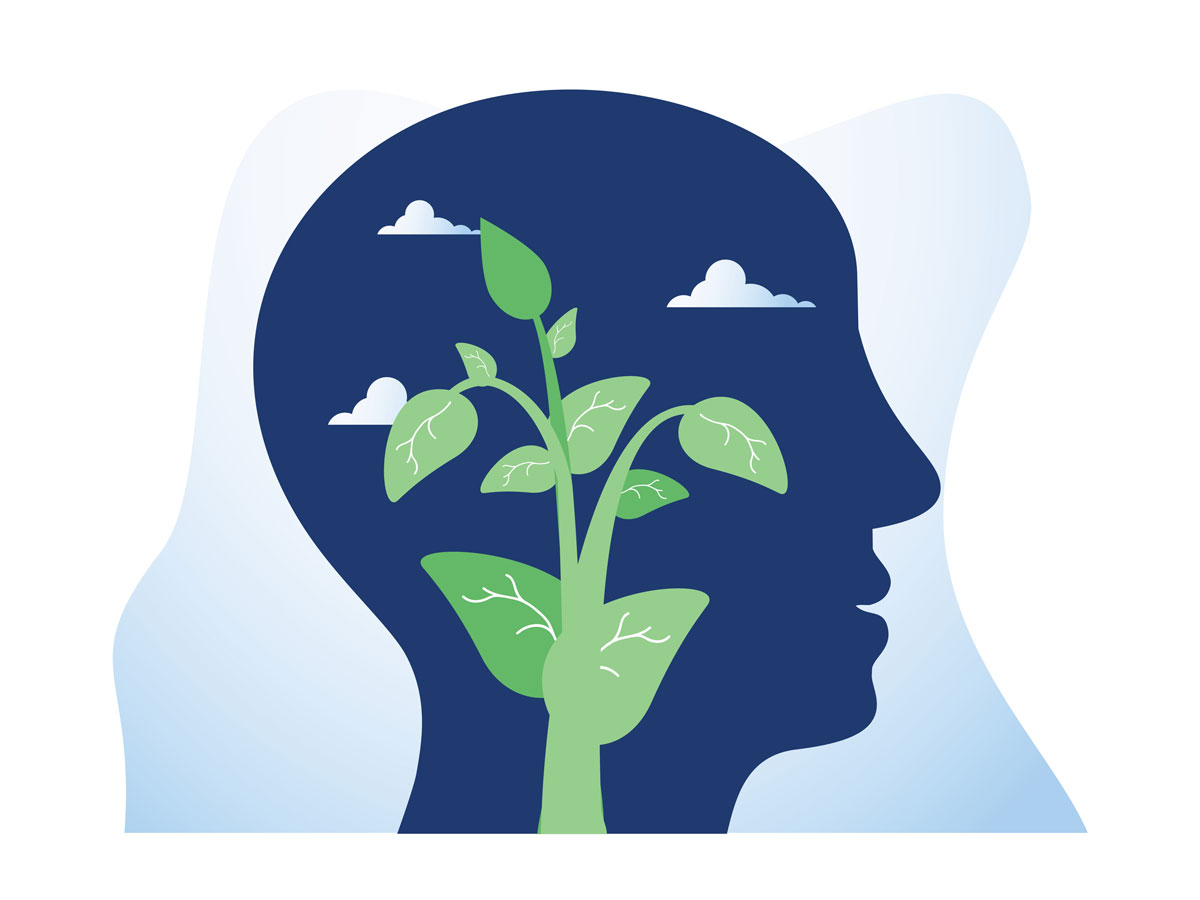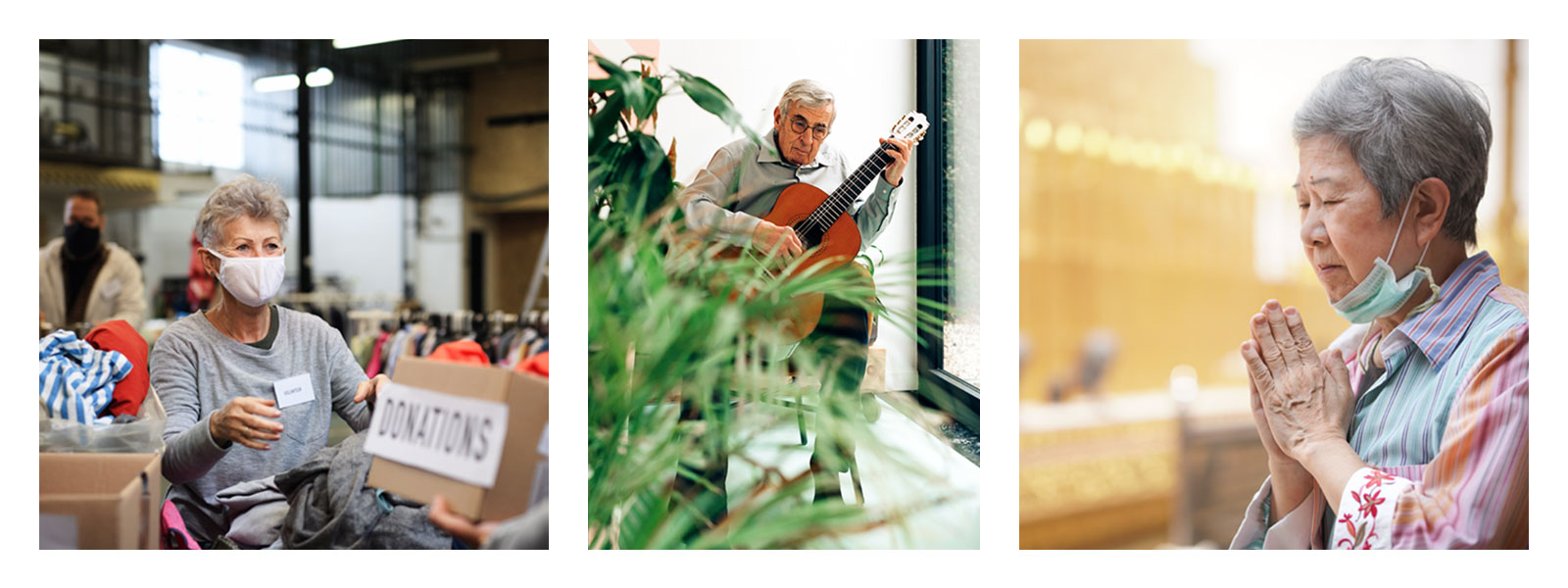Modern medicine has extended life expectancy in the US far beyond the wildest dreams of people just a century ago. Those of you who are 70 or older are likely to live 15 or 20 or even 25 more years. As we age, our life expectancy grows too. And as we age we evolve. We start asking different questions that need new answers.

The Big Questions become: “What is the purpose of all these added years?”, “ What is essential for a good life now?” and we may even find ourselves wondering from time to time, “Just why should I survive?”
As we move into the seventies we experience many transitions. Most of us are no longer working at all. The children are gone. We have fewer responsibilities of all kinds and may have downsized. And our future is getting smaller. Many of us go along from day to day rarely thinking about the Big Questions.
Let’s start with me. I am still busy though I am doing far less than in earlier decades. My psychotherapy practice is smaller and part-time. My writing projects are less demanding. I have less energy than in the past and tasks seem to take me longer, but I love what I do and I usually sail along with a sense of well-being.
When I lost optimism
But two weeks ago, I woke up one day and my usual good spirits and optimism were gone. I wondered what the hell am I even doing in this world? What really matters? I felt untethered like I was wandering aimlessly. As I went about my daily routines, none of the things that usually bring me pleasure broke my dark mood. Gradually some of the reasons for my funk became clear to me. The pandemic, of course, and new, bad diagnoses for several friends and clients. And the death of a friend. And two mass shootings on the national scene. I realized it was time for me to take some time out again to mourn the losses. And then, one day my usual good spirits had returned as suddenly as they had gone.
And, then a few days later I was ready to start this blog — looking at some of those questions that had arisen and that I often avoid. Starting with “What is essential for a good life for those of us who are over 70?”
I, like most of us, am clearer about what is not the meaning of my life than what the meaning is. I know it is not about money and material goods. We all know that, “You can’t take it with you” and we reject the very idea that, “He who dies with the most toys wins.” Getting to the top of whatever seems to have lost all its allure by the time you are seventy. But then the question remains, “How do I use these added 15, 20, or 25 years?”
Sigmund Freud believed “love and work” were the essentials for a good life. That answer has worked well for me for decades and my clients have found it useful, too. But it doesn’t seem to go far enough for me now. Immanuel Kant says to be happy it is essential to have something to do, someone to love, and something to hope for. That feels closer to the mark. I’ll go with Kant.

As we age we need something to do.
I have observed that those of us over 70 who are thriving are active. We do all sorts of things: sports, painting, walking, ceramics, music in many forms, volunteering, taking courses, writing. I know this from people in my wider community and it was true of many people I interviewed for Eightysomethings. Take Richard for example. He is a musician and a skilled woodworker. As well as playing his guitar most days, he is working making a dining room table for a good friend. And Lily. She takes two zoom courses at a college institute for retirees. Marilyn paints in oils and participates in a book group. Tony volunteers at a soup kitchen. Activities that engage us fully and give pleasure are the ones that are essential to our well-being.
As we age we need someone to love.
Most of us love several, perhaps many, someones. Family members, of course, are important at all ages. As we age, our spouses, children, grandchildren, siblings, nieces, nephews, cousins, and godchildren come to play ever more central roles in our lives. Surprisingly, friends, also, become increasingly important as we grow older. For many of us, our children are so busy that it is our friends who are our day-to-day companions.
During the recent pandemic, we found out just how important it is to have contact, to be in touch, with those we love. As we age, as well, we come to understand better that connecting with the people we love is absolutely necessary. We get the meaning of the “we are social animals.”
As we age we need something to hope for.
Man’s Search for Meaning, by Viktor Frankel, was one of the books that changed me most. Frankel observed that those who survived the horrors of the German concentration camps were not the strongest or healthiest people. Survivors were those who had a compelling purpose for living. They had something they wanted to do, a beloved family member they hoped to find, or a cause that they wanted to pursue in the future. My observations over fifty years have confirmed just how life-changing having a purpose can be.
Older people who flourish have a wide range of purposes and things to hope for that give meaning to their lives. Iris focuses on social justice including helping immigrants seeking asylum. Yvonne sees her family as giving meaning to her life. She helps the grandkids who need money for college and down payments to those who need it. Audrey is an artist and her meaning comes from painting. Fred’s cause is climate change. Meaning and purpose come from caring about something beyond ourselves.
I observe two other purposes that seem to appear only as we grow older and, particularly, in the very last stages of life.

Being alive
Just being is a purpose for a few of us over 70 people. Claude told me he has had the wonderful opportunity to continue to grow and develop over eight decades. Now he sees himself as having completed all the stages of life and his purpose is just being alive. Being himself. He feels no need now to do anything at all. Just be himself. Just as flowers do not need to justify being alive.
Evolving spiritually
As we age, some of us choose an inward journey, a journey of spiritual development. Thomas Moore, a former monk, called it getting to the mysteries of life. Others talk about an ongoing transformation that allows the fool in them to step forward. Agnes Rose spoke to me about enjoying the freedom and the dance that follows in the wake of letting go. Several people told me how their need to give advice, make plans or control others has vanished. They feel at peace, one with the cosmos.
I look forward to the peace and the dance of freedom of those more spiritually evolved people. But I am still active, trying hard to get some things done and make the world better. I still have my good and bad days and still get in my own way. And I continue to have trouble letting go of things. For now, I find my purpose in my clients, my writing, my family, my friends, and my life with Peter. I find meaning in helping you to age well and to end ageism. So, for now, I say, “not yet, not yet.”
How about you? I’d love to hear your comments and thoughts.

#agingwell #eightysomething #purpose #happiness #selfhelp #psychology #family


